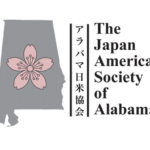Bonsai Collection Management and Curation and Japanese Gardening Techniques Internship
InternshipBookmark Details
Industry: Horticulture
Company: DENVER BOTANIC GARDENS, Inc.
Job Type
Internship
Description
About Denver Botanic Gardens: Green inside and out, Denver Botanic Gardens was founded in 1951 and is considered one of the top botanical gardens in the United States and a pioneer in water conservation. Accredited by the American Alliance of Museums, The Gardens has a robust living plant collection, natural history collection and art collection along with temporary art exhibitions. The Gardens is a dynamic, 24-acre urban oasis in the heart of the city, offering unforgettable opportunities to flourish with unique garden experiences for the whole family – as well as world-class exhibitions, education, and plant conservation research programs.
For more information, visit us online at www.botanicgardens.org .
Denver Botanic Gardens is currently seeking a Bonsai Collection Management and Curation and Japanese Gardening Techniques Internship Intern in our Horticulture Department! Read below to see if the requirements might be a good fit for you:
To be considered, please submit your application by Friday, January 31, 2025.
- To be considered for this internship, please submit all the following: resume, cover letter, transcript(s) (unofficial transcripts accepted), and two letters of reference. Application must be completed in full at the time you apply. You will not be able to modify or add to your application once it has been submitted.
Position Summary and Goals:
The intern will be introduced to, and master skills required to develop and maintain bonsai in the public garden setting. Photography of the collection will be a major component and include placement of all photographs into Denver Botanic Gardens’ database.
The intern will also be introduced to the theory, history, design, and maintenance of a small-scale public Japanese-Style Garden. Photography of the development of the plant material in the Japanese Garden will be compiled into a Garden Care & Development portfolio.
Compensation package includes a housing stipend of $1,000. Details to be covered during the interview process.
Background:
The Bill Hosokawa Bonsai Pavilion was opened in June 2012 to provide examples of bonsai from the Rocky Mountain region and other selected regions around the world. The intern will work with the Curator of Bonsai Collection in the bonsai pavilion in a variety of tasks including care and maintenance of the site, daily care of bonsai and long-term development of bonsai.
Shofu-En or “The Garden of Pine and Wind” was opened in 1978 after being designed by Koichi Kawana, a renowned Japanese Garden Designer responsible for the Japanese Gardens at Chicago Botanic Garden and Missouri Botanical Garden among others. This garden is designed in the chisen kaiyuushiki style, with a central pond and strolling pathways, and is planted with over 100 collected and trained ponderosa pines. The intern will work with the Assistant Curator to learn the aesthetic pruning principles and maintenance requirements typical in Japanese Gardens.
Requirements
Internship Highlights:
Interns will take part in field trips, lectures, and group projects. We at Denver Botanic Gardens feel strongly that there is no substitute for hands-on learning so in addition to the project and participating in the learning opportunities, interns are expected to work alongside their mentors and other horticulturists in the Gardens. This will include participating in the daily activities associated with public garden maintenance – weeding, watering, planting, accessioning, preparing for special events, etc.
The goal of the internship is to provide an overview of public horticulture as well as useful experience in a specific area which can help students define their interests in horticulture.
As a member of Denver Botanic Gardens staff, interns will participate in employee meetings and other day-to-day operations and will be subject to all Denver Botanic Gardens employment policies.
In Denver temperatures can reach a sizzling 100° in mid-summer, while temperatures at our Mount Goliath site can drop into the 50’s. Humidity is very low here, however, there are occasional days of rain or drizzle. Interns should be prepared to work in these environmental extremes as the work site is primarily outdoors.
Regular attendance at the work site may be required. As with all positions at Denver Botanic Gardens, the incumbent must be in good performance standing to be eligible for remote work. Remote work is at the discretion of management at all times.
All Gardens employees must be committed to the mission of connecting people with plants, especially plants from the Rocky Mountain region and similar regions around the world, providing delight and enlightenment to everyone.
General Duties and Responsibilities/Deliverables:
- Photographic documentation of the entire bonsai collection.
- Photograph and compile a portfolio of different plants’ development in the Japanese Garden.
- Develop skills for the care and maintenance of bonsai.
- Develop skills related to presentation of bonsai in an outdoor gallery setting.
- Develop selective pruning ability and achieve an understanding of when and how much to prune a variety of different plant material.
- Demonstrate an understanding of midoritsumi (candling) and momiage (needling)
- Presentation to staff and blog post detailing the project and what was learned at the end of the season
Skills that will be learned or refined:
- The intern will learn bonsai culture
- Horticultural mastery of plants in pots
- Design concepts related to bonsai
- Management of new growth on bonsai
- The intern will learn plant identification of bonsai material seen in the Rocky Mountain region.
- The intern will learn about record keeping of plants in the public garden setting.
- The intern will become familiar with working with fellow staff members, volunteers, and visitors to Denver Botanic Gardens.
- The intern will learn about the fundamentals of Japanese Garden Design and Maintenance
- Design philosophy
- Development
- Authenticity to place
- The intern will learn to appropriately prune and maintain:
- Ponderosa character pines
- Deciduous niwaki (garden trees)
- Tamamono (Organically Shaped Shrubs)
- Hedges
- Ground covers including moss
Horticultural knowledge that will be learned and how this project will link classroom theory with practical experience:
The intern will learn the uniqueness of bonsai growing techniques and how they vary from traditional horticultural practices. Soil components, watering practices and fertilization of bonsai will be examined.
Traditional Japanese Gardening requires a strong understanding of arboricultural principles, particularly how plant architecture responds to pruning for shape. These principles can be applied to any woody plant and adapted for herbaceous plants as well. Many aspects of traditional landscape care will be applied, and choosing the right plant for the environment and design is paramount.
Eligibility Requirements:
- Candidates must be currently authorized to work in the United States.
- Candidates must be currently enrolled in a post-secondary academic program or have graduated within the past six months.
- To be considered for this internship, please submit all the following: resume, cover letter, transcript(s) (unofficial transcripts accepted), and two letters of reference. Application must be completed in full at the time you apply. You will not be able to modify or add to your application once it has been submitted.
- Must have proven excellent customer service, interpersonal, and communication skills in dealing with the public.
- Ability to maintain stability under pressure and able to deal well with stressful situations.
- Ability to be flexible and willing to modify plans, when necessary, throughout the day.
- Ability to work a flexible schedule, including evenings, weekends and/or holidays.
- Knowledge of Microsoft Suite products, specifically Word, Excel and Outlook and Teams.
- Ability to work overtime as necessary.
- Must be a positive representative of the Gardens both internally and externally at all times.
- Must work with respect and cooperation at all times with fellow employees and the public.
- Must be committed to working safely at all times.
Mentor Profiles:
Larry Jackel saw his first bonsai at the Midwest Show in 1972 and has been actively studying bonsai and acquiring trees ever since. A move to Denver in 1976 connected Larry with the Rocky Mountain Bonsai Society. This club provided the nurturing necessary to become proficient in the art and craft of bonsai. The Front Range of the Rocky Mountains, to the west of Denver, provided the trees, in particular, the Ponderosa Pine but also the Limber Pine, Bristlecone Pine, Pinion Pine, Douglas Fir, and the Rocky Mountain Juniper. The acquisition of knowledge and experience with these trees over the past 40 years has given Larry the opportunity to teach about these conifers in lectures, demonstrations, and workshops across the country. In the spring of 2012, Larry joined the horticulture staff at Denver Botanic Gardens as its Bonsai Specialist. His mission at the Gardens is to develop and maintain a bonsai collection to be shown in the Bill Hosokawa Bonsai Pavilion.
Henry Basile joined the staff at Denver Botanic Gardens as Assistant Curator of the Japanese Garden in April 2023. Henry studied production horticulture at Kansas State University and has since specialized in structural and selective pruning, Japanese gardening techniques and bonsai. He has an additional passion for native/adaptive plant material found in the tallgrass prairies of Kansas and within the many ecosystems provided by the Rocky Mountains. Henry discovered his fascination with bonsai and selective pruning as an intern for Denver Botanic Gardens in 2020, working under Larry Jackel, Curator of the Bonsai Collection. After completing his education, Henry was the 2022 First Curator’s Apprentice at the National Bonsai and Penjing Museum in Washington D.C., where he continued to hone his skill in working with bonsai, penjing, niwaki and character pines, as well as develop a greater understanding of Japanese gardening techniques and art forms adjacent to bonsai. In addition to the Japanese Garden, Henry also shares responsibility for Le Potager, a kitchen garden designed after similar small-scale food-producing gardens of the French Renaissance.
To be considered, please submit your application by Friday, January 31, 2025.
Come work for a place that offers you SO much more than just a paycheck!
Salary Description
$20.00 – Per Hour





Share
Facebook
X
LinkedIn
Telegram
Tumblr
Whatsapp
VK
Mail